8 High-Protein Swaps for Building Muscle and Staying Full

Whether you're trying to build muscle, lose fat, or just stay fuller longer, protein is your best friend. But you don't need expensive protein powders or bland chicken breasts to hit your goals. These 8 simple swaps will help you boost protein intake naturally—without sacrificing taste or variety.
1. Milk (1 cup) → Oat Milk

Protein boost: While oat milk has less protein (3g vs 8g), choose protein-fortified oat milk (8-10g)
Why swap: Dairy-free, heart-healthy beta-glucans, lower environmental impact
Best for: Smoothies, cereal, coffee, baking
Look for brands like Oatly Protein or Planet Oat Extra Creamy that match dairy milk's protein content.
2. Cream Cheese → Cottage Cheese (blended)
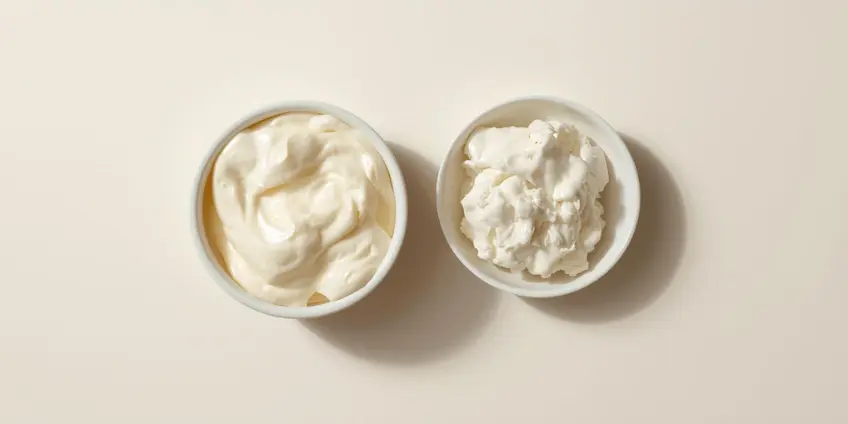
Protein boost: 400% more protein (28g vs 7g per cup)
Why swap: More filling, supports muscle recovery, fewer calories
How to use: Blend until smooth, add to bagels, dips, cheesecake
Cottage cheese is a bodybuilder's secret weapon—packed with slow-digesting casein protein that keeps you full for hours.
3. White Bread → Whole Grain Sourdough

Protein boost: 50% more protein (4g vs 6g per 2 slices)
Why swap: Better digestion, more fiber, lower glycemic index
Best for: Sandwiches, toast, French toast
Real sourdough fermentation breaks down gluten and increases nutrient absorption, making it easier on your gut.
4. Ground Pork → Chopped Mushrooms + Walnuts
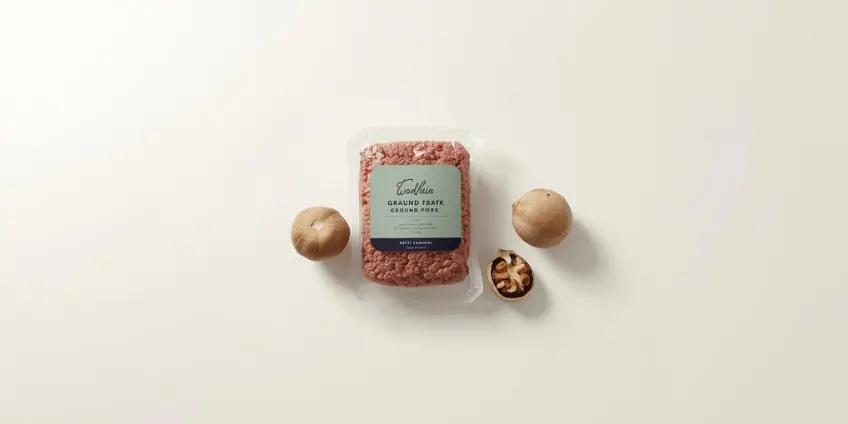
Protein boost: Comparable protein (20g per cup) with added omega-3s and fiber
Why swap: Heart-healthy fats, lower saturated fat, plant-based
How to use: Pulse in food processor to mimic ground meat texture
This combo gives you umami richness and a meaty texture. To create a complete protein profile, pair it with grains like rice or quinoa.
5. Ricotta Cheese → Cottage Cheese (blended)
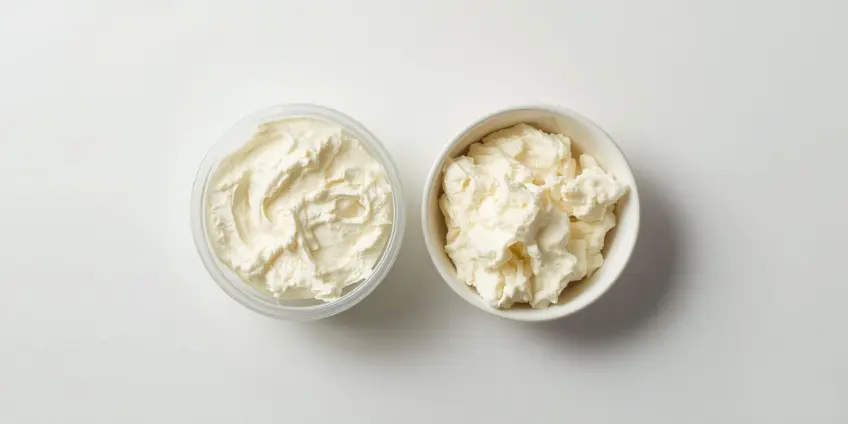
Protein boost: 60% more protein (28g vs 17g per cup)
Why swap: More affordable, higher calcium, supports muscle recovery
Best for: Lasagna, stuffed shells, pancakes, protein bowls
Cottage cheese is criminally underrated. Blend it smooth and you won't taste the difference in most recipes.
6. Plant-Based Protein: Beef (Ground) → Lentils (cooked)
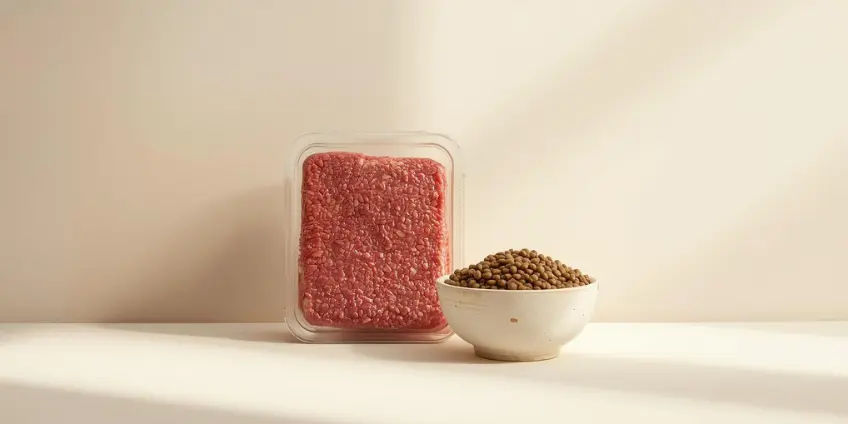
Protein boost: Similar protein (18g per cup of lentils vs 22g per 3oz beef)
Why swap: More fiber, lower cost, plant-based, rich in iron
How to use: Use in tacos, bolognese, shepherd's pie, chili
Lentils cook faster than any other legume and have a hearty, meaty texture. They're packed with fiber that keeps you full longer than beef alone.
7. Instant Oatmeal (flavored) → Steel-Cut Oats
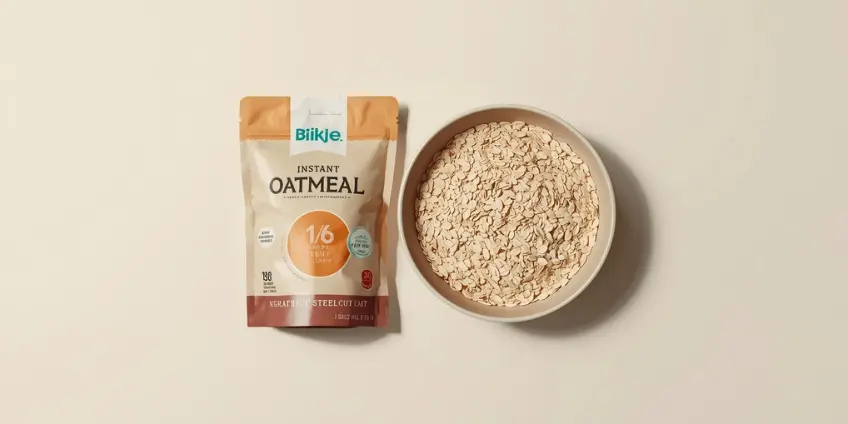
Protein boost: 50% more protein (7g vs 5g per serving)
Why swap: More fiber, slower digestion, better blood sugar control
Best for: Overnight oats, hot breakfast bowls, baking
Steel-cut oats have a chewier texture and keep you full until lunch. Prep a big batch on Sunday for the week.
8. Beef Jerky → Edamame (roasted)
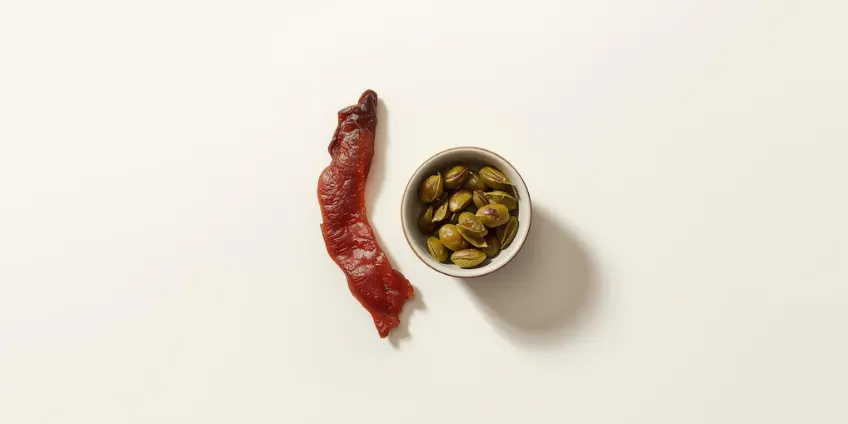
Protein boost: Similar protein (14g per serving), more fiber, plant-based
Why swap: Lower sodium, more affordable, gut-friendly
Best for: Snacking, salad topping, travel snack
Roasted edamame gives you that salty, crunchy satisfaction with added fiber and phytonutrients.
Pro Tips for Maximizing Protein
- Combine plant proteins: Pair legumes with grains for complete amino acids (e.g., rice + beans)
- Meal prep is key: Batch-cook high-protein staples like hard-boiled eggs, grilled chicken, and quinoa
- Track your intake: Aim for 0.7-1g of protein per pound of body weight
- Spread it out: Distribute protein throughout the day (20-30g per meal) for better absorption
About Our Nutritional Data
All nutritional data in this article is sourced from the U.S. Department of Agriculture (USDA) FoodData Central database. We prioritize accuracy to ensure our swaps are evidence-based and trustworthy. Nutritional values may vary slightly based on brands and preparation methods.
🎁 Want More High-Protein Recipes?
Download our free cheat sheets packed with 100+ ingredient swaps, including:
- High-Protein Swaps for muscle building
- Healthy Baking Substitutes with hidden protein
- Emergency Pantry Swaps for quick protein-rich meals
About the Author

This article was written by Ant Real, the founder of SwapHealthy. As a parent, home cook, and developer, Ant is passionate about making healthy eating accessible and delicious for everyone. He created SwapHealthy to share his personal journey and the science-based swaps his family uses to enjoy their favorite foods in a healthier way.